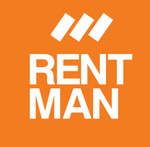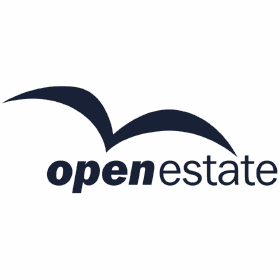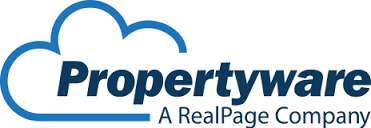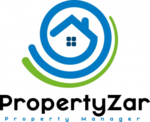Description

Hotel Effectiveness

Telos
Comprehensive Overview: Hotel Effectiveness vs Telos
Hotel Effectiveness and Telos are distinct entities with different functions and market targets, so it’s important to discuss them separately to accurately describe their roles in their respective industries.
Hotel Effectiveness
a) Primary Functions and Target Markets:
- Primary Functions: Hotel Effectiveness primarily focuses on workforce management for the hospitality industry. Their platform offers solutions that help hotels optimize labor costs, manage compliance, forecast labor needs, and improve overall operational efficiency.
- Target Markets: The primary market is the hospitality industry, encompassing hotels and resorts of various sizes. Their solutions cater to hotel operators, management staff, and executives who need to streamline scheduling, payroll, and labor management processes.
b) Market Share and User Base:
- Hotel Effectiveness is recognized as a leader in labor management solutions within the hospitality sector. Its user base comprises thousands of hotels across multiple brands and independent operators, indicating a significant presence in its niche market. However, precise market share percentages would require specific industry analysis data which isn’t publicly provided.
c) Key Differentiating Factors:
- Specialization in Hospitality: Hotel Effectiveness specifically tailors its solutions to address the unique challenges of labor management in hotels, making it a specialized provider in this area.
- Comprehensive Suite: It offers a comprehensive suite of tools that cover not just scheduling, but also compliance management, labor forecasting, and payroll integration.
- Data and Analytics Focus: With a strong emphasis on data-driven decision-making, Hotel Effectiveness provides insights and analytics that help hotels maximize productivity and minimize labor costs.
Telos
a) Primary Functions and Target Markets:
- Primary Functions: Telos Corporation operates within the cybersecurity and information technology domain. It provides a range of solutions including cyber risk management, secure networks, identity management, and compliance automation.
- Target Markets: Telos targets government agencies, large enterprises, and organizations that require robust cybersecurity measures and IT infrastructure. They work extensively with the Department of Defense, other federal agencies, and commercial enterprises that need to adhere to strict compliance standards.
b) Market Share and User Base:
- Telos is a prominent player in the cybersecurity and IT field, particularly within government sectors. While exact market share figures would require detailed industry reports, Telos is well-regarded especially in federal government circles for its trusted solutions and longstanding expertise.
c) Key Differentiating Factors:
- Government Expertise: A distinct advantage of Telos lies in its deep-rooted expertise and longstanding relationships within the U.S. government, enabling it to offer specialized solutions tailored to stringent government requirements.
- Broad Cybersecurity Suite: Telos offers a broad array of products from secure communications to identity management, providing comprehensive solutions within cybersecurity.
- Emphasis on Compliance: The company places a strong emphasis on compliance automation, delivering solutions that help organizations meet regulatory requirements efficiently.
In summary, Hotel Effectiveness and Telos operate in distinct spheres with their own specialized offerings and target audiences. Hotel Effectiveness is a niche player in labor management for hotels, while Telos is a cybersecurity and IT solutions provider with a strong emphasis on government and large enterprises. Their market presence and user base reflect their expertise and dominance in their respective fields, with differing key differentiators based on industry-specific needs.
Contact Info

Year founded :
2007
+1 678-325-1150
Not Available
United States
http://www.linkedin.com/company/hotel-effectiveness

Year founded :
2016
Not Available
Not Available
Hong Kong
Not Available
Feature Similarity Breakdown: Hotel Effectiveness, Telos
To provide a feature similarity breakdown between Hotel Effectiveness and Telos, we need to consider the general scope and purpose of these products. Note that my information is not exhaustive, but here’s a comparative analysis based on common functionalities and design features typically associated with hotel management and HR software, as well as tools like Telos, which could refer to different products depending on the context (e.g., Telos Alliance for audio technology or Telos for mindfulness/mental health solutions).
a) Core Features in Common
Hotel Effectiveness:
- Labor Management: Optimizes workforce scheduling and labor expenses.
- Budget Tracking: Real-time labor costs and financial planning features.
- Compliance Management: Ensures adherence to labor laws and regulations.
Telos (general, if referring to a workforce or management-related solution):
- Resource Planning: Effective allocation of resources, similar to workforce management.
- Data Analytics: Utilizes analytics for decision-making, similar to budget tracking.
- Compliance Features: Tools to stay compliant with industry regulations.
Common Features:
- Employee Scheduling: Tools for planning and managing shifts and schedules.
- Analytics & Reporting: Tools for generating insights and visual reports.
- Cost Management: Features to help track and minimize operational costs.
- Compliance: Systems designed to ensure compliance with relevant laws and standards.
b) User Interface Comparison
-
Hotel Effectiveness:
- Dashboard: Typically user-friendly with a focus on labor metrics and scheduling.
- Visuals: Utilizes graphs and charts for easy interpretation of labor data.
- Navigation: Emphasizes ease of use with intuitive task flows.
-
Telos (platform-dependent):
- If comparing to a management tool:
- Clean Interface: Typically streamlined for effective resource management.
- Data Presentation: Prioritizes clear graphical representations.
- Intuitiveness: Designed for easy navigation similar to industry-specific platforms.
- If comparing to a management tool:
In user interfaces, both products typically aim for simplicity and clarity to allow users to quickly access the most necessary tools and data.
c) Unique Features
Hotel Effectiveness:
- Specialized in Hospitality: Tailored specifically to the needs of the hospitality industry, providing insights specific to hotel labor management.
- Industry Benchmarking: Ability to compare labor costs and benchmarks against industry standards.
- Mobile Accessibility: Some features may be optimized for mobile to aid managers on-the-go.
Telos:
- If considering Telos in a non-hotel management context:
- Broader Application: May cater to various industries beyond hospitality.
- Integration Capabilities: Potential for integration with a wider array of tools, depending on the specific Telos product.
- Focus Divergence: Depending on the Telos product, it might focus on other areas like audio technology or health, providing different unique features.
Conclusion
While both Hotel Effectiveness and a comparable management-focused Telos platform might share some basic management and analytics features, their unique value propositions and interfaces vary based on their primary industry focuses. Hotel Effectiveness distinctly advantages hospitality operational management, while Telos might offer broader applications or industry-specific features depending on its particular focus.
Features

Not Available

Not Available
Best Fit Use Cases: Hotel Effectiveness, Telos
Hotel Effectiveness and Telos are two distinct platforms catering to different business needs. Below is an overview of the best-fit use cases for each, along with how they cater to different industry verticals or company sizes.
Hotel Effectiveness
a) Best Fit Use Cases:
- Hospitality Industry: Hotel Effectiveness is specifically designed for the hospitality sector, making it an ideal choice for hotels, resorts, and other lodging facilities.
- Labor Management: It excels in optimizing labor costs, which is a significant expense in the hospitality industry. Businesses looking to manage their workforce effectively and reduce labor-related expenses would benefit the most.
- Occupancy-based Scheduling: Hotels with fluctuating occupancy rates, which require dynamic scheduling to align labor needs with guest volumes, can make excellent use of this platform.
d) Catering to Industry Verticals/Company Sizes:
- Small to Large Hotels: The platform is versatile and scales according to the size of the hotel, from boutique hotels to large chains.
- Different Hotel Types: It serves various hotel types, including budget, mid-scale, and luxury properties, offering features tailored to the specific needs of each segment.
- Regional and National Chains: Chain hotels with multiple locations benefit from centralized labor management and reporting tools.
Telos
b) Preferred Scenarios:
- Blockchain and Decentralization Projects: Telos is a blockchain platform that is ideal for businesses and projects looking to leverage blockchain technology and smart contracts.
- Scalable dApp Development: Companies developing decentralized applications (dApps), especially those that require high scalability and speed without sacrificing transaction costs or energy efficiency, would find Telos beneficial.
- Innovative Tokenomics: Projects aiming to introduce novel tokenomic models or implement governance features can utilize Telos for its advanced capabilities.
d) Catering to Industry Verticals/Company Sizes:
- Technology Startups and Enterprises: Telos caters to startups and established tech companies exploring blockchain solutions across various industries, including finance, supply chain, and gaming.
- Medium to Large Enterprises: Its robust infrastructure supports larger-scale enterprise developments, especially for companies looking to integrate blockchain with existing systems.
- Cross-industry Applications: While primarily tech-focused, its applications could extend to any industry exploring blockchain-based solutions, thus attracting a diverse range of company sizes and types.
In summary, Hotel Effectiveness is tailored for the hospitality sector focusing on labor management, scalable for different hotel sizes and types. Telos, meanwhile, is suited for blockchain-related projects across various industries, adaptable for technology startups to large enterprises looking to integrate decentralized technologies.
Pricing

Pricing Not Available

Pricing Not Available
Metrics History
Metrics History
Comparing teamSize across companies
Conclusion & Final Verdict: Hotel Effectiveness vs Telos
To provide a conclusion and final verdict for assessing the value of Hotel Effectiveness and Telos, it's important to consider several factors, including functionality, cost-effectiveness, ease of use, customer support, and specific use-case suitability.
a) Which Product Offers the Best Overall Value?
Hotel Effectiveness generally tends to offer the best overall value for hotel managers specifically looking to optimize labor costs and improve operational efficiency. It's particularly valuable due to its specialization and deep focus on the hospitality sector, providing tools that directly address common challenges faced by hoteliers.
Telos is more versatile, offering robust communication solutions that are widely applicable across various industries. It might present better value for businesses looking for flexible communication tools beyond just the hospitality industry.
b) Pros and Cons of Choosing Each Product
Hotel Effectiveness:
- Pros:
- Tailored for the hospitality industry with specific features for labor management and operational improvements.
- Provides actionable insights and benchmarks that are highly relevant for hotel operations.
- Often results in measurable cost savings and efficiency improvements for users.
- Cons:
- Limited applicability outside the hospitality industry.
- May have a steeper learning curve for users not familiar with hotel operations.
- Might involve higher implementation costs as it's tailored to specific industry needs.
Telos:
-
Pros:
- Versatile communication tools that can be applied in numerous industries.
- Often easier to integrate with a wide range of existing business tools.
- Generally user-friendly with strong customer support and community resources.
-
Cons:
- Lacks specific industry-focused features that Hotel Effectiveness offers for hoteliers.
- May not be as effective in addressing specialized operational needs.
- Potential for underutilization if the primary need is labor cost optimization in hotels.
c) Recommendations for Users Deciding Between Hotel Effectiveness vs. Telos
For hotel managers and operators whose primary goal is optimizing labor management and improving operational efficiencies within the hospitality sector, Hotel Effectiveness is likely the more fitting choice. Its specialized features align closely with the unique challenges of the industry, potentially leading to better outcomes and ROI.
For organizations that require versatile communication solutions applicable across various functions or industries, especially if the business is not tied to hospitality, Telos offers broader applicability. It's suitable for teams looking for robust, user-friendly communication tools with strong support.
Ultimately, the decision should be guided by specific operational needs, the industry context, and whether the more specialized functionality of Hotel Effectiveness aligns better with the user's strategic priorities compared to the broader applicability of Telos. Users are advised to conduct trial periods or demos for each product, if possible, to directly assess which solution best meets their unique needs.
Add to compare
Add similar companies




